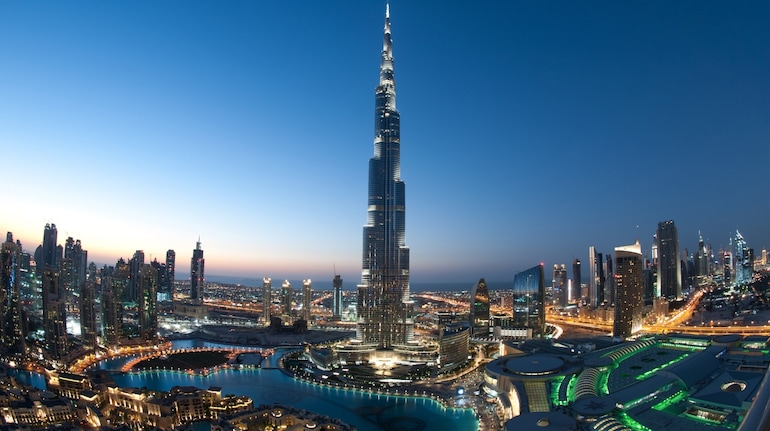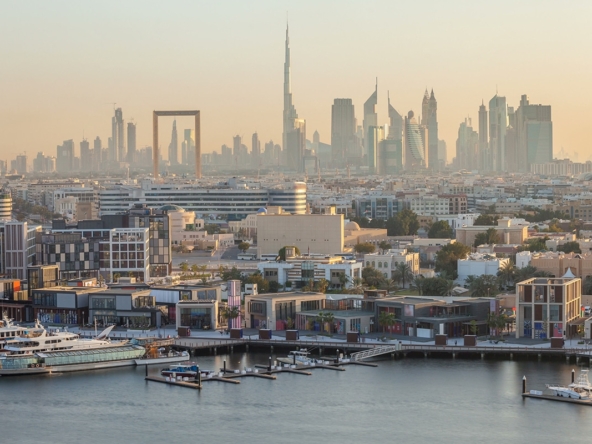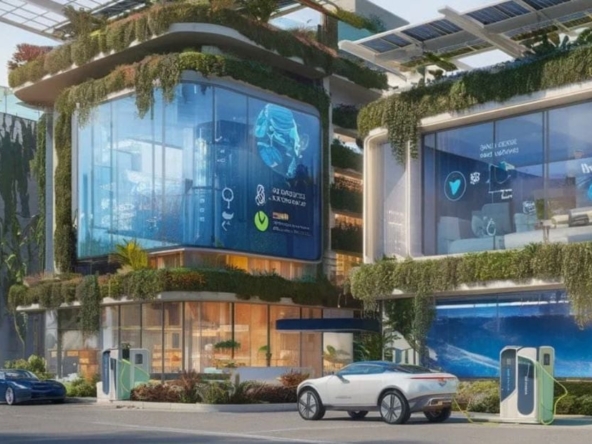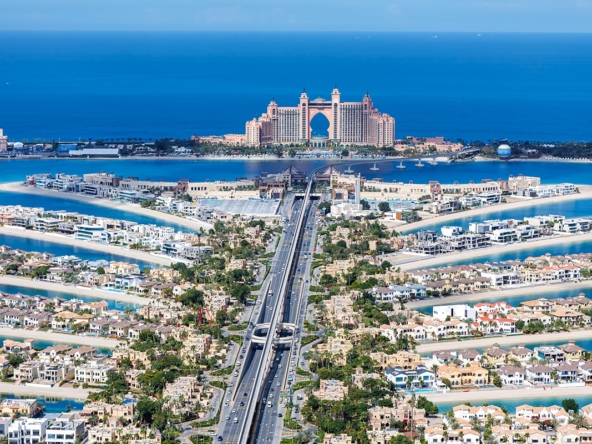After a major period of stabilisation in Dubai’s apartment rental sector, experts say 2025 promises to be another great year for investors and house owners in Dubai, with rentals predicted to see an average jump of 18 percent for short-term leases and upwards of 13 percent for long-term leases.
The continuous surge in the number of professionals from around the world moving to Dubai for work and lifestyle, coupled with the rising property prices in the Emirate are expected to aid the spike in rentals next year, Ritesh Mehta, Senior Director, and Head (North and West), residential services and developer initiative, JLL India told Moneycontrol.
Dubai’s real estate market experienced substantial growth post-pandemic, supported by its global appeal, pro-business environment, and consistent influx of working population. While both buying and renting activities have remained robust, there is a natural stabilisation period following rapid gains in recent years. Experts call this a period of stagnancy, where the apartment rentals remained almost stable, over the last few quarters in the real estate sector.
However, according to JLL, Dubai is expected to see over 1 lakh new apartments and villas entering the real estate sector over the next 15 months, which will substantially help ease the pressure and rein in prices and rentals in the emirate.
Unaffordability in Dubai’s real estate push for rentals
Dubai’s economy has experienced both growth and challenges in recent years, including the impact of global economic uncertainty and fluctuating oil prices.
As a major oil-exporting region, Dubai’s economy is influenced by oil price movements. Variations in oil prices potentially impact economic growth and, consequently, the real estate market.
Recent regulatory changes, such as adjustments in property purchase regulations and visa policies also influenced market dynamics. For instance, the introduction of long-term residency visas and incentives for property investors can stimulate demand and counteract cooling trends.
“Additionally, the cost of borrowing has fluctuated in recent years, impacting property affordability and investment decisions. Higher interest rates can reduce buyer affordability, while lower rates can stimulate demand,” Mehta added.
Moreover, given that there has been a rise in residential prices in the last one to two years, buying a home has become unaffordable for many. “Many of these prospective buyers are in a wait-and-watch mode and therefore prefer to rent. This surge in rental demand has led to rental values going up in recent times. We can expect anywhere between 10-15% rental escalation in 2025 in prime areas in Dubai,” Morgan Owen, Managing Director – Middle East & North Africa, ANAROCK Group pointed out.
Rental yield in Dubai is another booster
With ongoing demand from expats, job creation, and increasing population, experts say rental yields are expected to remain stable in 2025 with prime areas crossing 8 percent of returns for the investors.
Rental yields vary based on location and property type, with average yields around 6–7 percent, according to Rabiah Shaikh, Chief Business Officer & Principal Partner – Global Markets, Square Yards.
Dubai’s diverse rental market caters to a mix of low-to-mid and high-end segments, accommodating a wide range of local or expatriate populations. Areas with high rental activity in recent periods include Jebel Ali, Al Warsan, Business Bay, Dubai Marina, Jumeirah Village Circle, Dubai Silicon Oasis, and Downtown Dubai among others and we anticipate further rental growth in these areas in the coming period, he added.
In 2023, the number of new rental contracts for both apartments and villas peaked, and current levels in 2024 are already close to 90 percent of the peak, data from Square Yards show.
Among the other prominent areas that may continue to see growth include Jumeirah Lake Towers (JLT), Dubai Production City and Dubai South.
Diverse financing options for Indians peak interest
Experts say Indian investors have multiple financing options for real estate purchases in Dubai. A cash purchase is one straightforward method, involving full payment upfront without loans or instalments. Additionally, several UAE banks offer mortgage options to foreign residents, including non-resident Indians (NRIs). These typically require a down payment of 20-30 percent of the property value. Some Indian banks with international operations offer loans for overseas property purchases, including in Dubai.
Several Dubai property developers offer attractive payment plans, which can spread the cost over several years. Other developers offer schemes where part of the rent goes towards eventual ownership.
Mehta added that NRIs may be able to secure loans against their existing properties in India to finance Dubai real estate. “Some investors set up offshore companies to purchase and finance properties in Dubai. Additionally, Islamic financing, like Shariah-compliant mortgage products are available from some UAE banks,” he added.
Sources....




